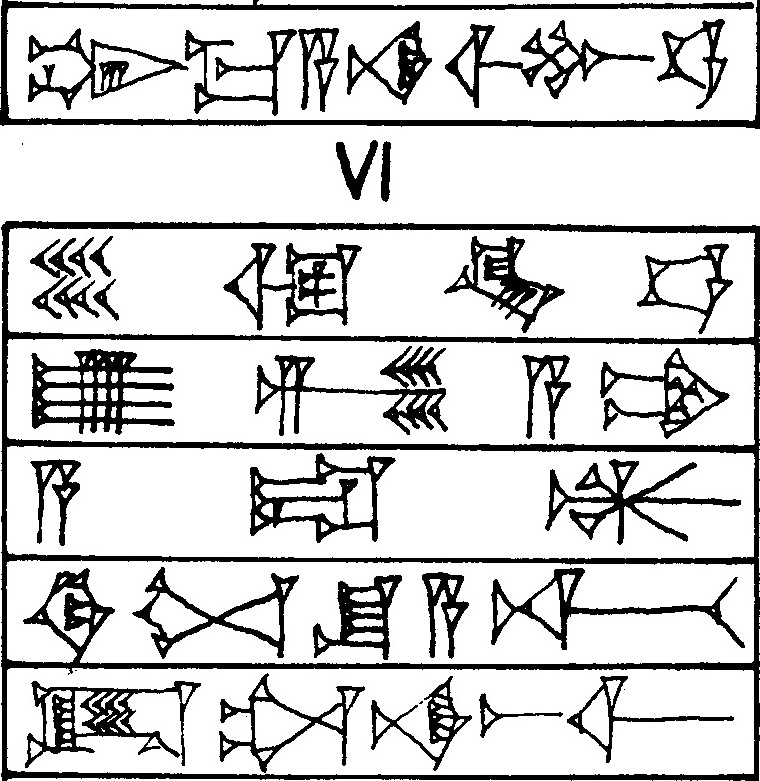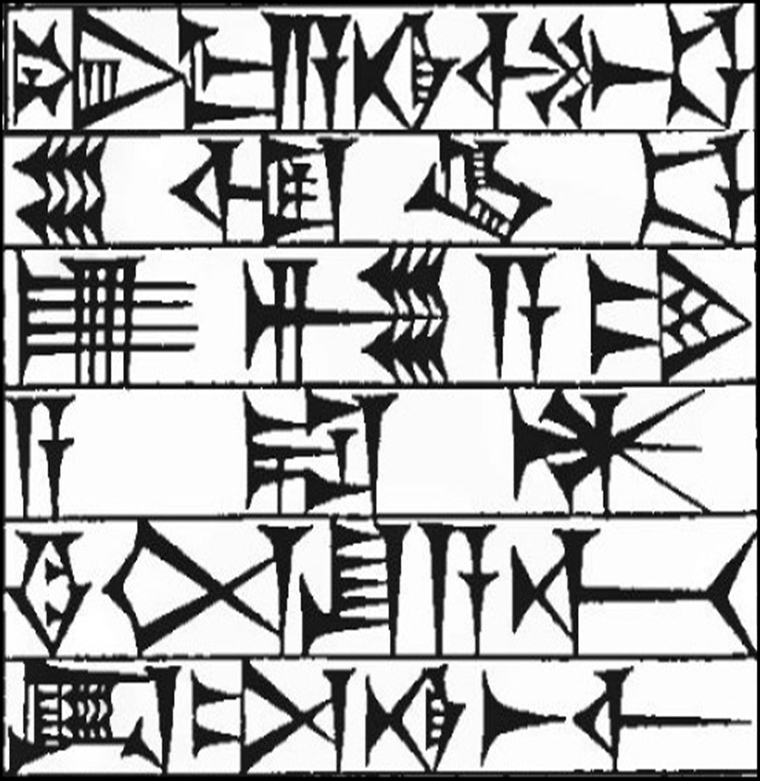Source: Huehnergard (2013, p. 113)
Source: Huehnergard (2013, p. 113)
Cuneiform
Signs for Law § 4
- UnavailableSource: Bergmann (1953, p. 4)Source: Harper (1904, p. [pl. VIII])
Inscription
Location of Law § 4 ·
Powered by Stele 3DSM
Logic
Logic Map for § 4 · Powered by Lawgic Sniffer SM
Vocabulary
Staff notes
- 'Obvious and redundant qualifications'Added on January 22, 2024 by eHammurabi Staff
Seemingly obvious or repeated statements like "he will bear the penalty of that case" oftentimes mean that the punishment or penalty cannot be negotiated or otherwise avoided. This also seems to occur in capital cases that include statements like "... he shall be killed. He will not live."
See also: N/A - 'Law continuations'Added on March 22, 2024 by eHammurabi Staff
Provision § 4 seems to be the first instance of continuation; that is, the reliance of contents from a previous provision in order to make sense of the current one. In this case: § 3 calls for the death penalty if one has given false testimony for a capital case; but § 4 calls for monetary penalties if the nature of the case is grain or silver. This continuation thus provides a different penalty for a similar crime due to different qualifications.
See also: § 3
Citation
Dedović, B. "§ 4 - eHammurabi." OMNIKA Foundation, 22 Oct. 2023, ehlaw.org/law/4. [Accessed 27 Jan. 2026]
Bibliography
Abulhab, Saad D. The Law Code of Hammurabi: Transliterated and Literally Translated from its Early Classical Arabic Language. New York, NY: Blautopf, 2017.
Bergmann, Eugen. Codex Ḫammurabi: Textus Primigenius. Rome, Italy: Pontificium Institutum Biblicum, 1953.
Huehnergard, John. Key to a Grammar of Akkadian (Third Edition). Winona Lake, IN: Eisenbrauns, 2013.
OMNIKA Foundation Contributors. "OMNIKA: Digital Mythology Library & Search Engine." Las Vegas, NV: OMNIKA Foundation, accessed November 14, 2023. https://omnika.org. [Visit]
Richardson, Mervyn E.J. Hammurabi's Laws: Text, Translation and Glossary. New York, NY: T & T Clark International, 2004.
Sound of Text Contributors. "Sound of Text: AI Text-to-Speech." Accessed November 14, 2023. https://soundoftext.app. [Visit]
eHammurabi Glossary
The § symbol commonly denotes "a shorthand notation for the word 'section'."
Read moreeHammurabi Glossary
The term Cuneiform commonly means "an ancient writing system used by various cultures around Mesopotamia."
Read moreeHammurabi Glossary
The term Normalization commonly means "the application of grammatical rules unto transliterated sound values."
Read moreeHammurabi Glossary
The term Translation commonly means "the conversion of linguistic contents and their meanings from one language into another."
Read moreeHammurabi Glossary
The term Transliteration commonly means "the conversion of sound values from one writing system into another."
Read more




